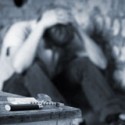Study shows teen drinking rates getting worse
If you have children between the ages of 12 and 20, you might want talk to them about the dangers of underage drinking. A new study released from the Federal Substance Abuse and Mental Health Services Administration says more kids are drinking at a younger age because their parents aren’t educating them enough about the consequences.
The report surveyed thousands of students between the ages of 12 and 20. A staggering 40-percent said they’ve received free alcohol from either their parents or adults over the age of 21. Researchers are hoping parents will spend more time educating their kids, instead of giving them alcohol.
“I think it’s absolutely true,” says Sally Stearns, whose daughter just graduated from Corcoran High School. “It’s too easy, with jobs and all the other stresses you have, to just let the school districts DARE program handle it. And since they have DARE in school, we [assume we] don’t have to talk to them about it because they’re being talked to about it. The only people they listen to are us.”
Sally continues to discuss the issue with her daughter.
”My daughter and I have talked about it continuously since she was five years old,” Stearns said.
”I believe some students care, depending on their life stories and if they’ve seen people drinking in their lives or not. But I believe there are also plenty of students who don’t care,” said Samantha Elias, Stearns’ daughter.
Another study from the New York State Office of Alcoholism and Substance Abuse Services says two-thirds of seventh to 12th graders have tried alcohol at least once in their lives.
AP: Study: Many teens get alcohol from adults
Many of the nation’s estimated 10.8 million underage drinkers are turning to their parents or other adults for free alcohol.
A government survey of teens from 2002 to 2006 said slightly more than half had engaged in underage drinking.
Asked about the source of alcohol, 40 percent they got it from an adult for free over the past month, the survey said. Of those, about one in four said they got it from an unrelated adult, one in 16 got it from a parent or guardian and one in 12 got it from another adult family member.
Roughly 4 percent reported taking the alcohol from their own home.
“In far too many instances parents directly enable their children’s underage drinking – in essence encouraging them to risk their health and well-being,” said acting Surgeon General Steven K. Galson. “Proper parental guidance alone may not be the complete solution to this devastating public health problem – but it is a critical part.”
The nationwide study by the Substance Abuse and Mental Health Services Administration, being released Thursday, tracks the social contexts involved in underage drinking, a problem leading to thousands of alcohol-related traffic deaths and injuries each year.
About one out of five of those aged 12 to 20 – or roughly 7.2 million people – said they had taken part in binge drinking, defined as consuming five or more drinks on at least one occasion in the past month, the survey said. Rates were significantly higher if they lived with a parent who engaged in binge drinking.
The study, which uses data from the National Surveys on Drug Use and Health, is based on a scientific random sample of 158,000 people aged 12 to 20 in the United States. Among the other findings:
-Over half of current underage alcohol users were at someone else’s home when they had their last drink, while 30.3 percent were in their own home. About 9.4 percent were at a restaurant, bar or club.
-About 3.5 million teens aged 12 to 20 each year meet the diagnostic criteria for having an alcohol use disorder, such as dependence or abuse.
-Among younger teens, slightly more girls reported drinking than boys did. In the middle teens, they drank at roughly the same rate. Among 18 to 20-year-olds, boys outpaced the girls.
-Rates of underage drinking and binge drinking were slightly higher at the opposite ends of the economic spectrum.
-Rates of current and binge alcohol use among 12 to 20 year olds were higher in the Northeast and Midwest than in the South or West.
-Rates of alcohol use disorder among those aged 12 to 20 was higher for American Indians or Alaska Natives (14.9 percent) than for whites (10.9 percent), blacks (4.6 percent), Hispanics (8.7 percent) and Asians (4.9 percent).
“This report provides unprecedented insight into the social context of this public health problem and shows that it cuts across many different parts of our community,” said Terry Cline, administrator of SAMHSA. “Its findings strongly indicate that parents and other adults can play an important role in helping influence – for better or for worse – young people’s behavior with regard to underage drinking.”
__________
source: News Channel 9 WSYR

